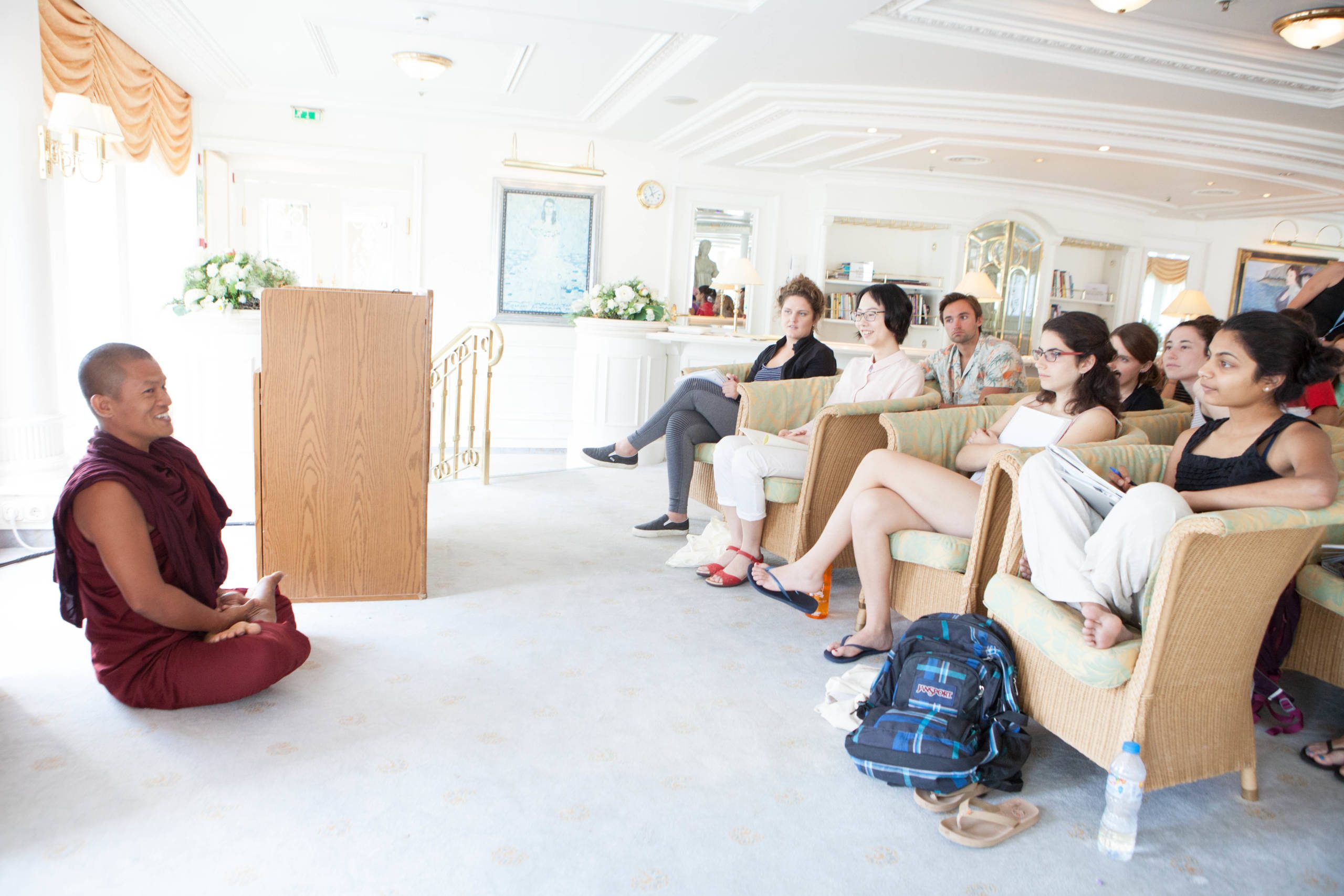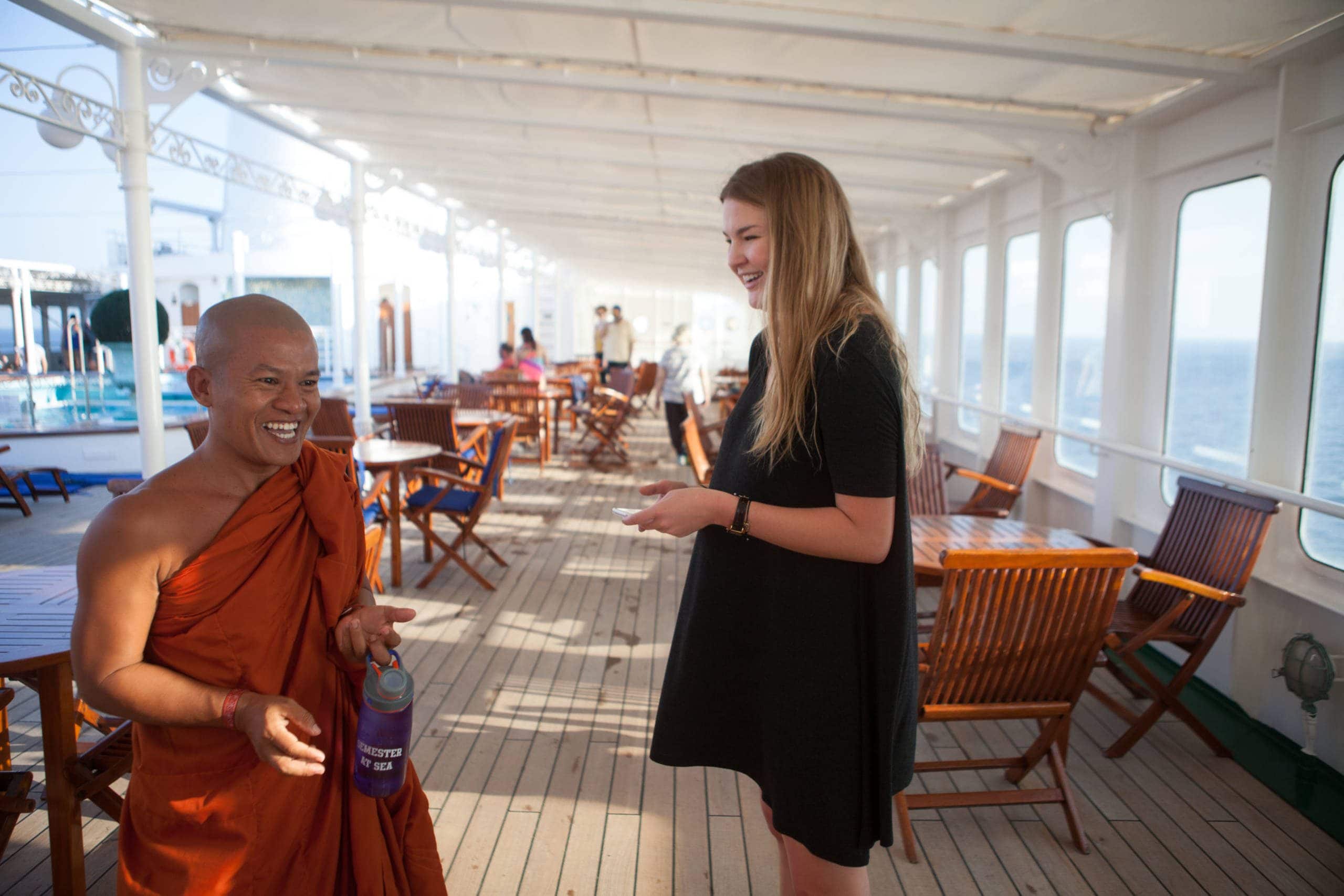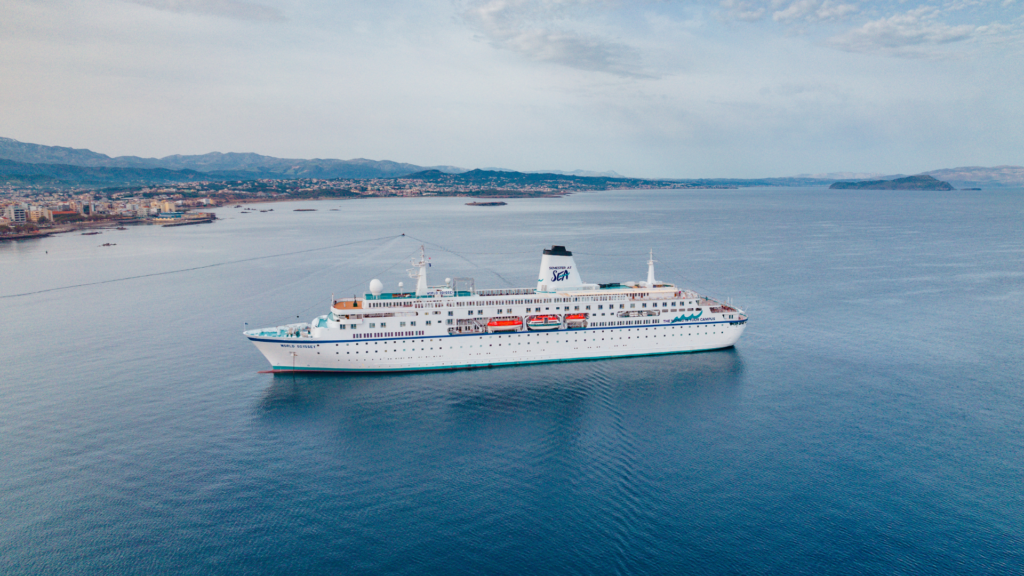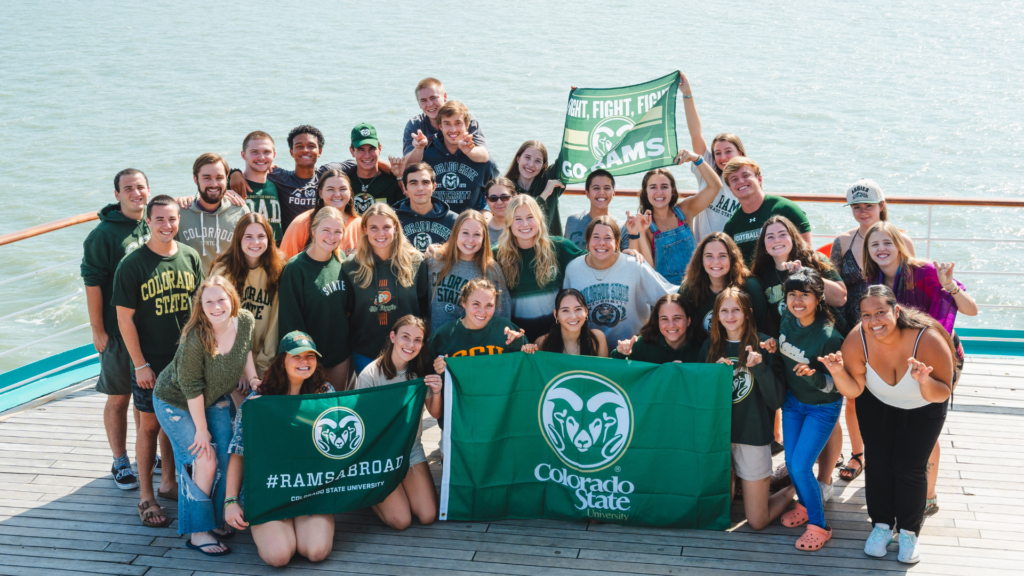Written by Global Journalism Scholar, Paula Pecorella.
It is extremely unusual for a lifelong Buddhist monk to use Facebook, carry a cell phone, or board a luxury cruise liner traveling the world. But for Burmese monk Ven Nandaka, who goes by Unan, taking part in these western experiences firsthand helps him bridge the gap between his students in a country that has long been isolated from the rest of the world.
In 2011 when Unan was appointed to an administrative position at the Sein Yadana Monastery in Mandalay where he lives, a donor gifted him a cell phone in order to keep contact with outsiders visiting the monastery. Since then he has created a Facebook and an email address in the effort of spreading information and teaching his students about the power of technology.
“As a rule Buddhist monks are really inappropriate to be keeping a cell phone and keeping a computer. It’s for high-class people,” Unan explained. “But times are changing nowadays if we couldn’t follow the time we will still be behind the time and we don’t want to stay behind.”
 Traditional Buddhists take a vow of poverty and view material possessions as poison to the peaceful mind. Unan however, says he sees information technology as a gateway for the Myanmar people to become educated and access higher knowledge.
Traditional Buddhists take a vow of poverty and view material possessions as poison to the peaceful mind. Unan however, says he sees information technology as a gateway for the Myanmar people to become educated and access higher knowledge.
“When I get here I learn how you use the Internet. You use the Internet very usefully but it’s very, very opposite in my country,” Unan explained. “My people, my students, they don’t know yet how to use the internet. They use the internet just for entertainment really. They have never visited an educational website. They have never known how to find a source. They have never learned the internet is really a knowledge library.”
Unan, now 38, was young when the Burmese government lifted its sanctions and began to allow tourism. At 12 years old, when his master presented him with the choice to either learn English or astrology, the choice seemed obvious to Unan. Today he realizes how easy it could be to teach the Myanmar people English with the proper technology and Internet speed.
 “Nowadays English language is an important role more than other languages,” said Unan. “If you want to learn English you don’t need to go to class, you can just install many sources on your phone.”
“Nowadays English language is an important role more than other languages,” said Unan. “If you want to learn English you don’t need to go to class, you can just install many sources on your phone.”
And while this may be true, it has not stopped the symbiotic relationship that Unan has formed with many of his students in which he teaches them English and they teach him how to use technology.
“I didn’t really know how to use Facebook, I had to learn a lot,” he explained. “As a monk it’s really far away from IT, but now I know how to take pictures and how to post on Facebook and how to write my opinions and how to comment.”
Just five years later Unan has hundreds of friends on Facebook and it has allowed him to stay in touch with people around the world. Jeff Whittall, a friend of Unan’s and the MV World Odyssey’s ship doctor, reflected on the impact technology has had on their friendship.
“Before he was on the Internet or on Facebook we would send one letter a year to him in Mandalay and then we would get 1 letter back,” said Whittall. “And then when we knew we were coming back to Myanmar in 2015 we were able to communicate much quicker. Trying to direct someone to the port we are going to be at last minute would have been much more difficult [without Facebook Messenger] but when we came up the river last year he was sitting there waiting for us.”
While the adaptation to technology and Facebook has proved beneficial in Unan’s life, not all of his students can understand the magnitude of its implications and he worries that the distractions will poison their purity if they do not learn how to use it appropriately.
 “Don’t waste your precious time just using Facebook because this high technology is not for entertainment,” Unan tells his students. “The aim of high technology is to give you higher knowledge, higher education. If you are just enjoying it listening to music using it to chitchat, you are a slave of technology.”
“Don’t waste your precious time just using Facebook because this high technology is not for entertainment,” Unan tells his students. “The aim of high technology is to give you higher knowledge, higher education. If you are just enjoying it listening to music using it to chitchat, you are a slave of technology.”
In his teachings, he urges students to follow his lead and believes that the 21st century is a “knowledge age” with people’s knowledge currently at its prime. He also acknowledges that the Internet is still very slow and out of reach for many people living in more remote areas in Myanmar today, but remains optimistic about the future.
“When we have good Internet, if we know how to use information technology very systematically, we can know how to use the internet as our knowledge bank,” Unan said. “To wake up the whole country I need time I need to create more environments like this. This is my goal.”


